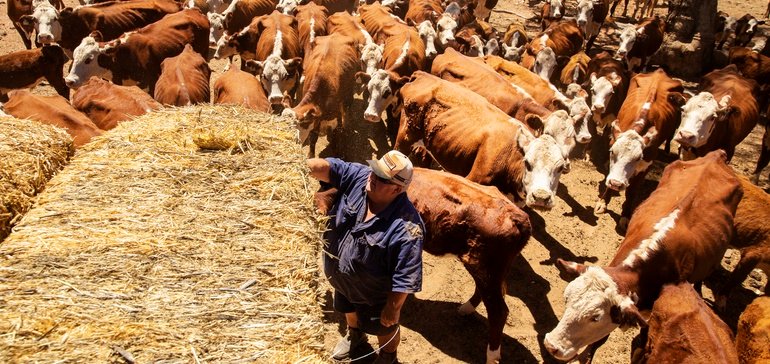JBS USA is spending $130M to boost beef capacity amid growing demand

Dive Brief:
- JBS USA is spending more than $130 million to increase beef production capacity and more than $150 million in annualized pay increases to workers across its nine beef plants, the company said in a statement.
- The investment comes after JBS previously invested $130 million to increase production capacities at two of its major beef processing facilities in Grand Island and Omaha, Nebraska.
- Meat and poultry processing companies such as JBS and Tyson Foods have been expanding capacity across their networks to meet growing demand from consumers for beef, pork, chicken and other proteins.
Dive Insight:
The announcement from JBS that it is spending close to $300 million on its workers and to increase output encapsulates two of the biggest issues impacting meat and poultry companies today.
Despite increased consumption of plant-based offerings, meat and poultry remain as popular as ever. During COVID-19, shoppers were eager to try new types and cuts of meat that they had not considered before the pandemic. This translated to $82.5 billion in meat sales for 2020, up 19.2% from the prior year, according to the Food Industry Association and the Foundation for Meat & Poultry Research & Education.
The Department of Agriculture estimated in May the average American will consume 223.9 pounds of red meat and poultry in 2021, compared to 204.6 pounds a decade ago.
With consumption on the rise, it’s no surprise meat and poultry companies are looking to expand.
Last month, Tyson announced it was opening its first new poultry processing facility in 25 years with a plant in Humboldt, Tennessee. The Arkansas company also is expanding its case-ready meat production by reopening an idle plant in Columbia, South Carolina. Sanderson Farms said it is desperate for another poultry facility to meet rising chicken demand, but its CEO stated last month that high animal feed costs and expensive construction materials could prompt a delay.
As JBS and other processors expand their production capacity, they also need workers to staff the facilities. The meat industry has been hit especially hard by the shortage of workers that has pressured much of the U.S. economy. Some economists have said stimulus checks, tax refunds and unemployment benefits provide a disincentive for people to look for work. The ongoing threat of COVID-19 also has discouraged activity.
Meat and poultry processing is a challenging and physically demanding job. Workers in some cases are required to perform the same task over and over, or work with machinery, both of which can be dangerous, said Chad Hart, an Iowa State University agricultural economist. Plants are often located in rural areas close to where the animals are raised, increasing the difficulty for companies to attract and keep workers, he said.
“This industry has faced a limited employee pool before COVID that’s arguably smaller today,” Hart told Food Dive recently. “This longer-term issue of finding workers has been there for a while. COVID did not create that. COVID just exacerbated it.”
Meat and poultry companies are discovering they need to pay workers more and provide them with incentives to not only attract employees but to also keep them from fleeing to another industry. Today, the average wage for JBS USA hourly beef team members is more than $22, the company said.
Tyson’s average pay, including benefits, has steadily risen during the past five years to $22 an hour. The increased pay, coupled with other incentives, has increased the number of people interested in applying to work for the company, a spokesman said recently.
With protein demand expected to escalate globally, meat processors will be under pressure to sustain and even increase output. Automation will help offset some of the labor demands, but technology can only go so far, putting the pressure on JBS and others to dig deeper into their pocketbooks.
Source: fooddive.com

